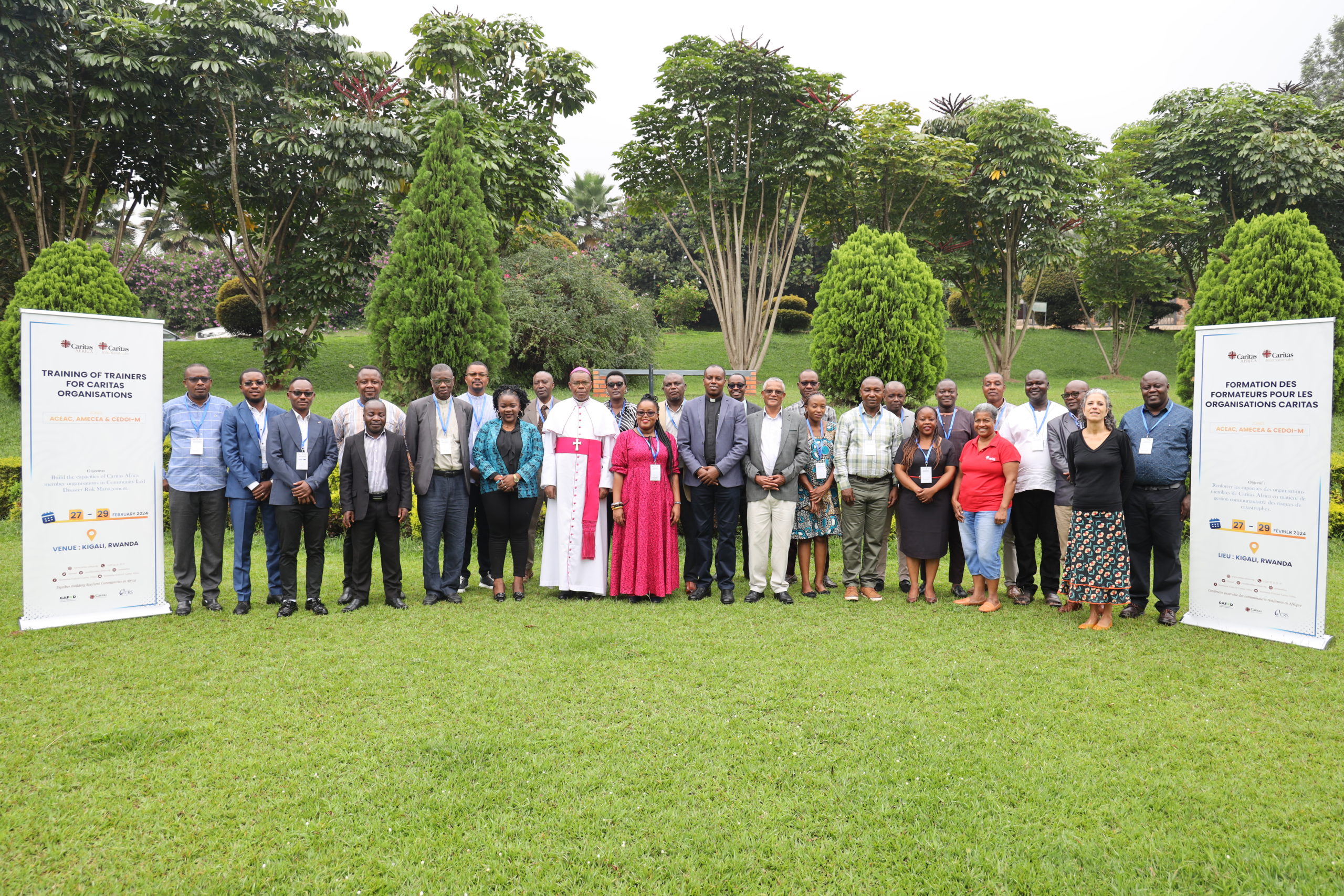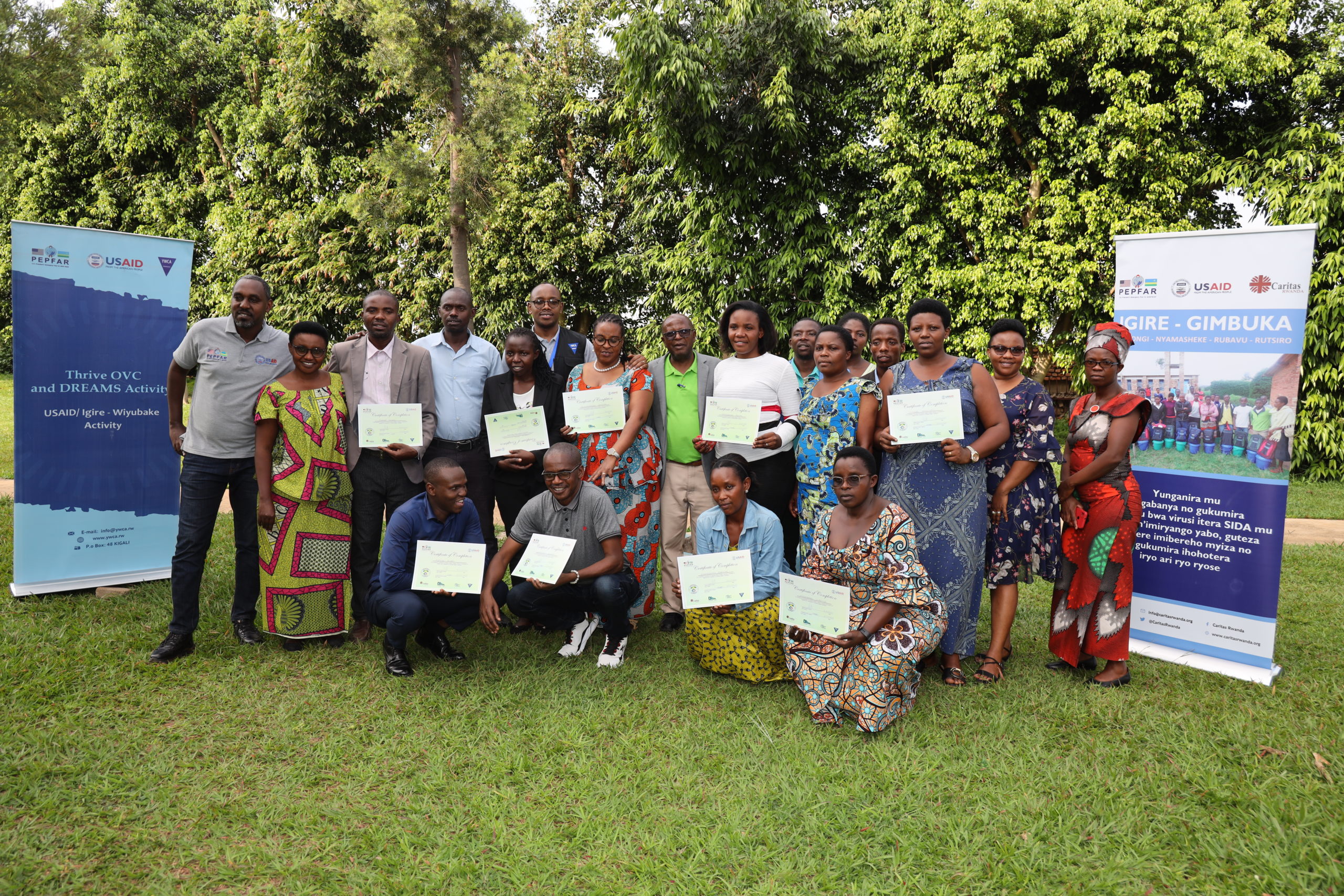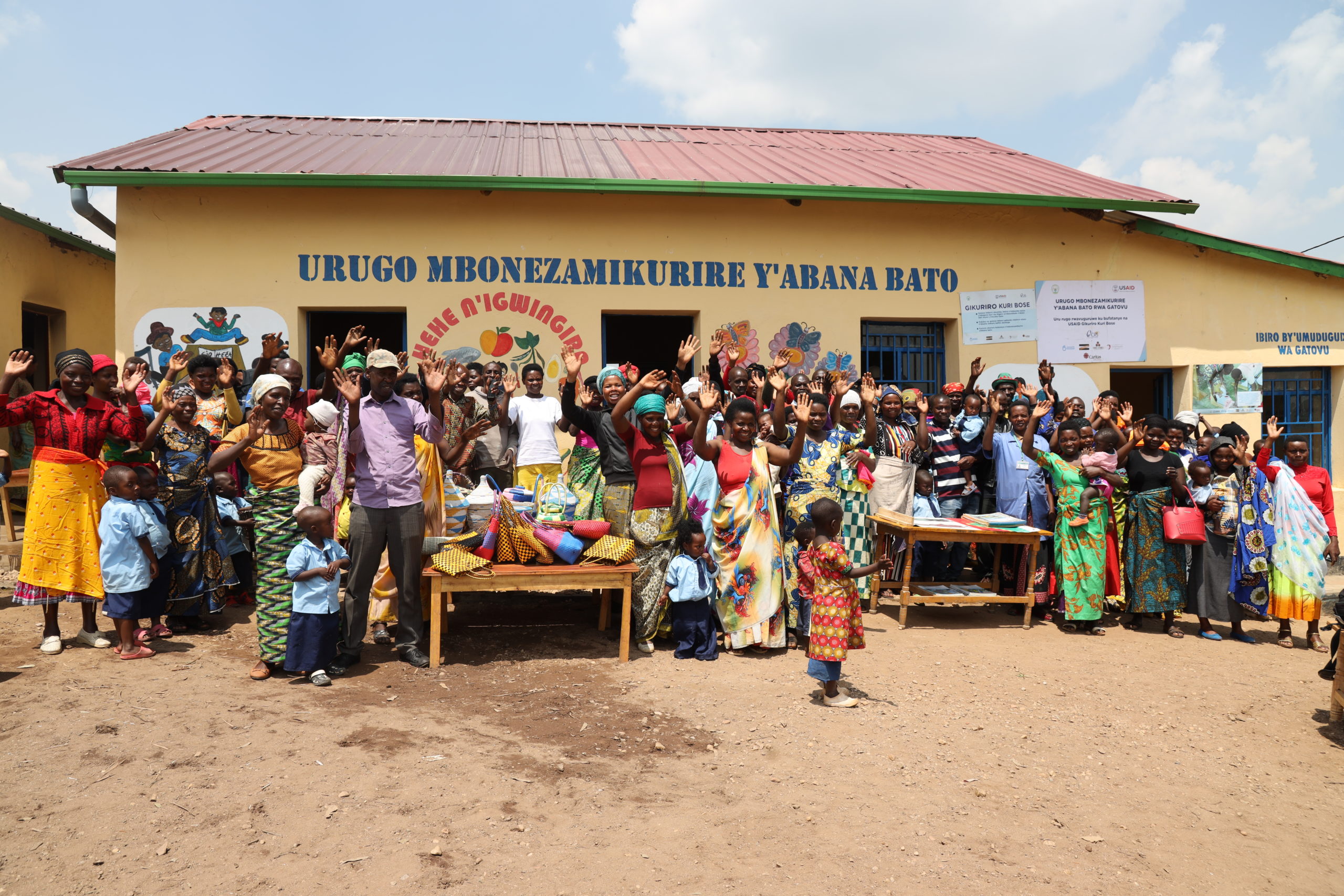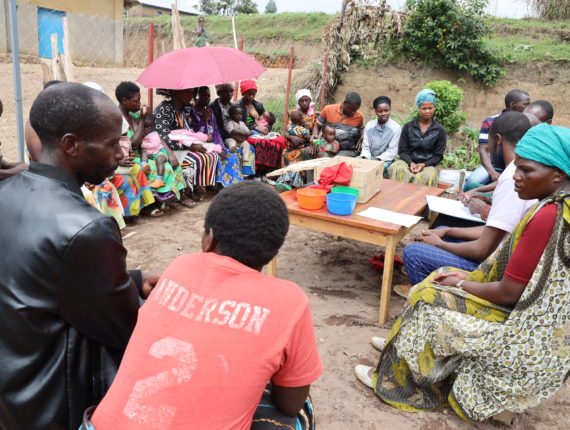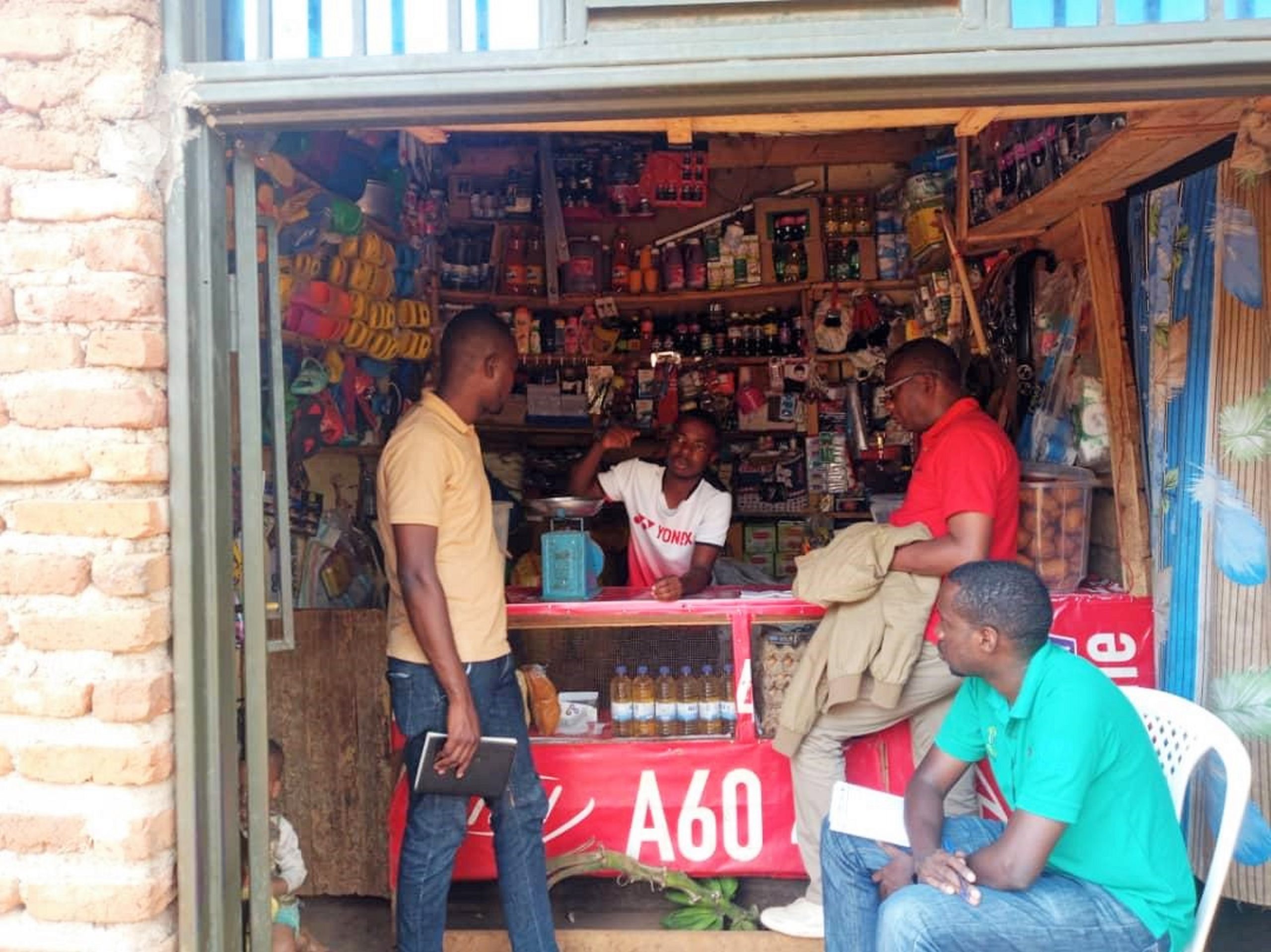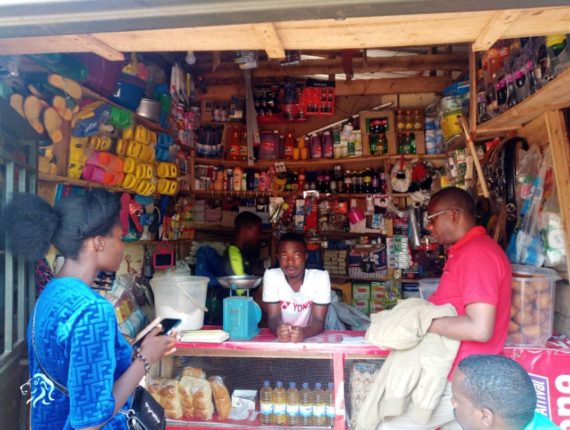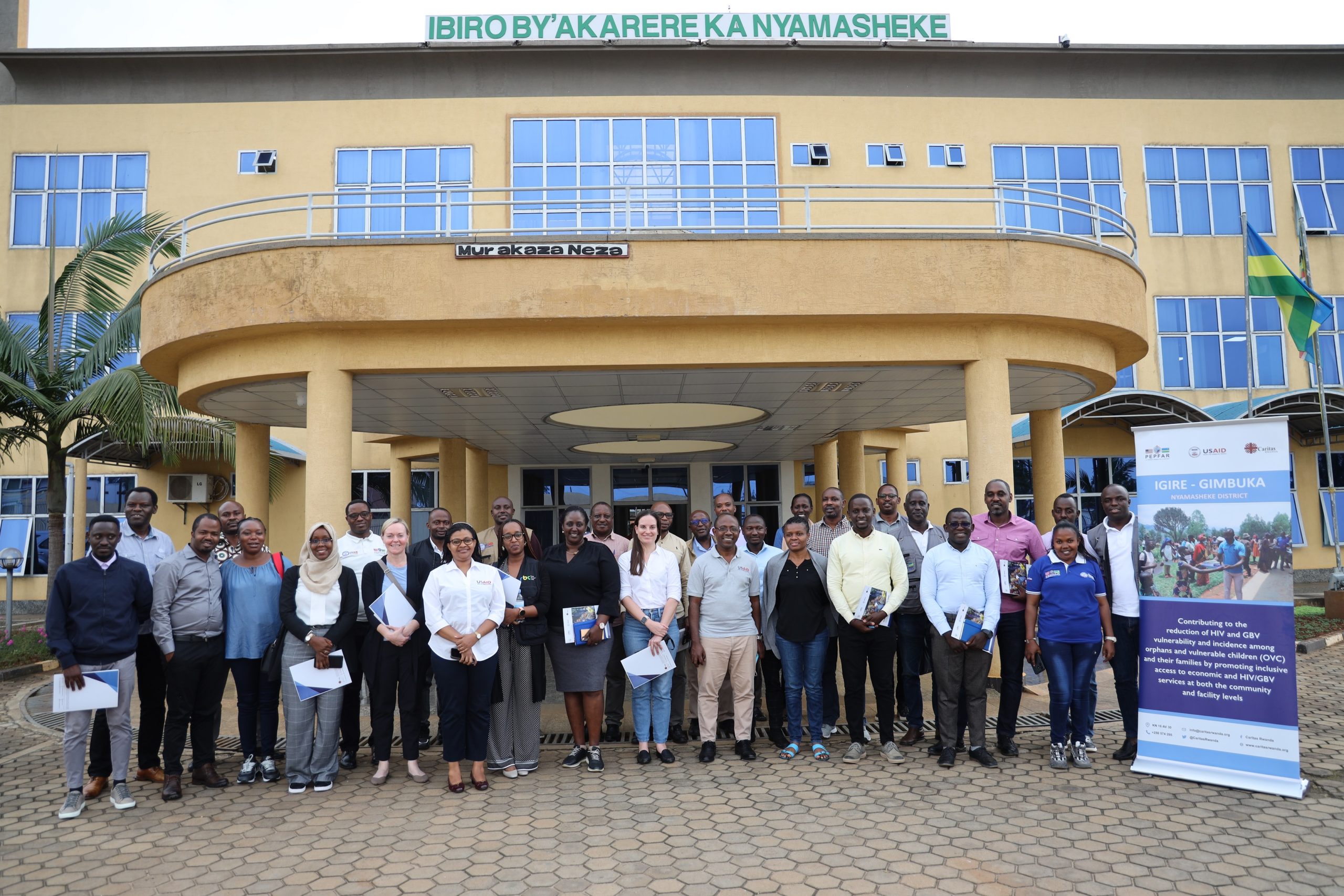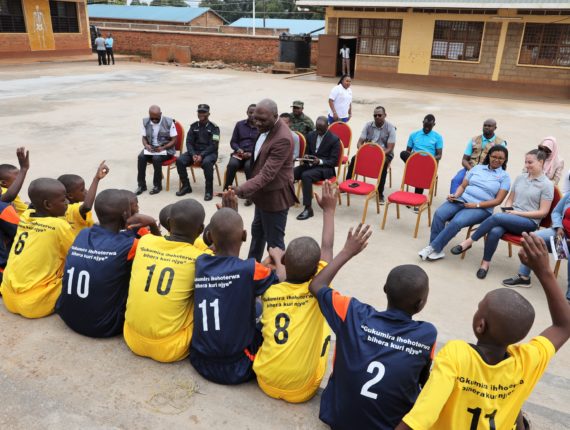As a way of promoting integral human development, with funding from Caritas Internationalis and Caritas Australia, and technical support from Catholic Relief Services, Caritas Africa has trained its member organizations on Community Led Disaster Risk Management, from 27th to 29th February in Kigali.
This training of trainers was part of an ongoing capacity strengthening mechanism which Caritas Africa has prioritized in its 2024 – 2030 strategic framework, strategic orientation 3 (Saving lives and reduce the impact of humanitarian crisis in Africa Region) and strategic objective 3 (To strengthen the capacity of Caritas Africa Member Organizations in Community Managed Disaster Risk Reduction – CMDRR).
In his opening remarks, Bishop Anaclet Mwumvaneza, President of Caritas Rwanda and Bishop of the Nyundo Diocese, mentioned that the Great Lakes region where Rwanda belongs, often faces several kinds of disasters, namely volcanic eruptions, earthquakes and landslides, floods, cyclones, drought, etc. As a humanitarian organization, Caritas intervenes to help people in need during serious humanitarian crises caused by all these disasters. “Thus, by combining our efforts, we can respond collectively and effectively to disasters and therefore rescue people in danger”, he said, in reference to this training.
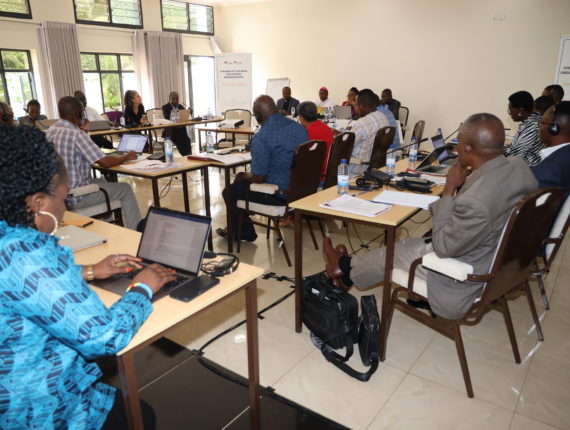
As for Ms. Lucy Esipila, Regional Coordinator of Caritas Africa, Caritas Africa is carrying out such Disaster Risk Reduction training across all the zones because beyond emergencies/humanitarian work, there is need to build capacity of the communities affected so that they can withstand disaster shocks when affected. “We believe that if communities are resilient, then the impact of disasters can be minimized. To reach out to the communities, we rely upon you participants”, she said.
Ms. Episila added that Caritas Africa has successfully trained technical staff from the IMBISA zone and they are now implementing their action plans. IMBISA zone regroup Angola, Sao Tome & Principe, Kingdoms of eSwatini, Lesotho, Republics of Angola, Botswana, Mozambique, Namibia, South Africa and Zimbabwe.


